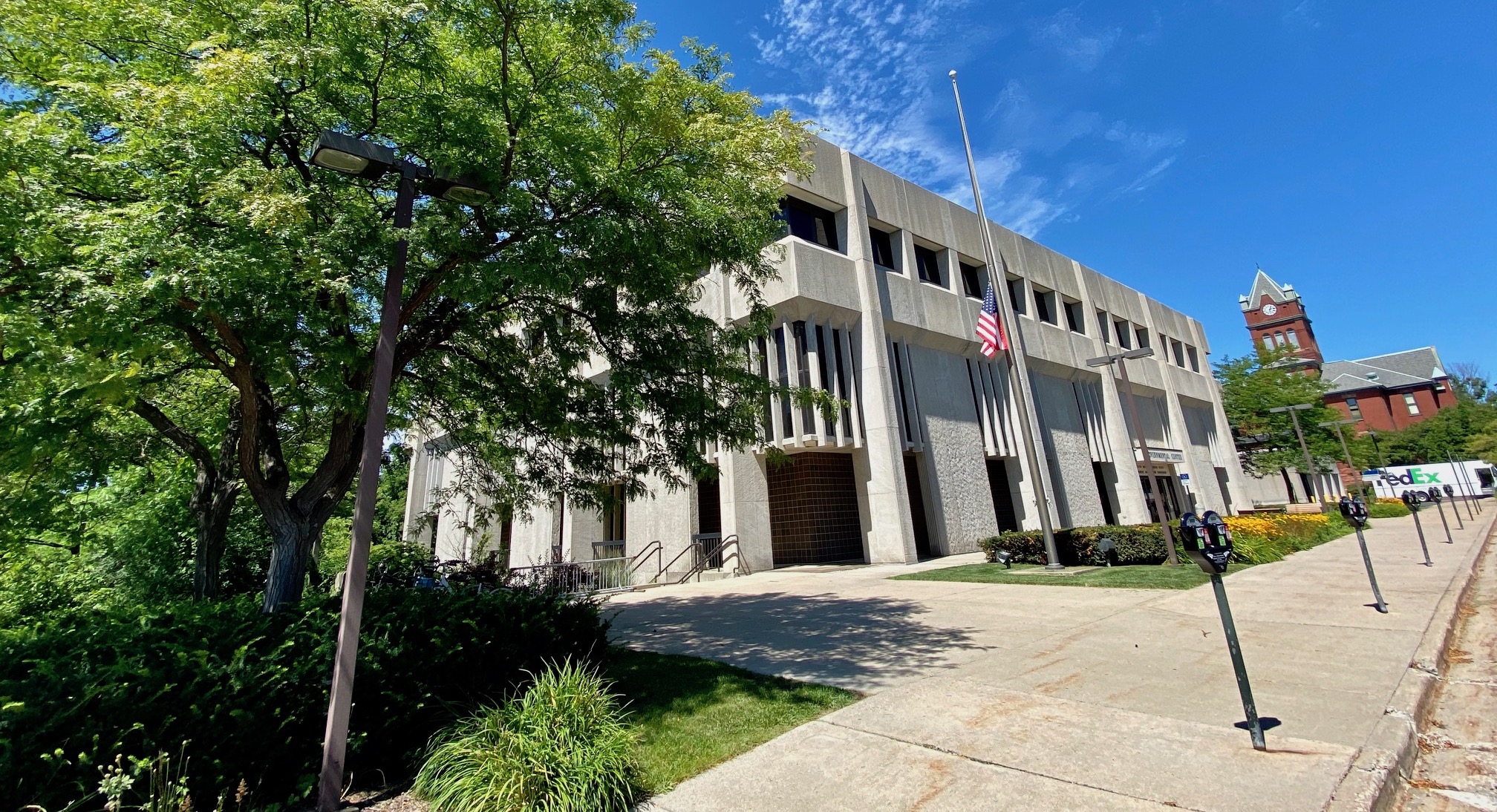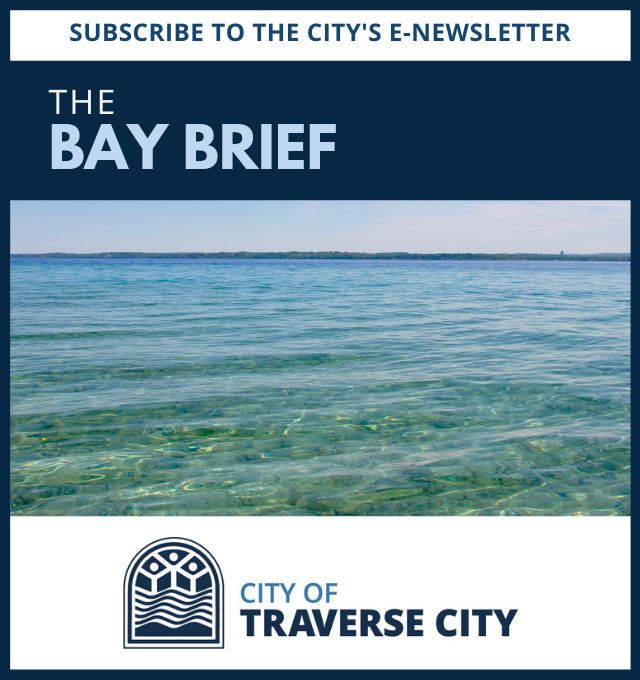
Traverse City’s To-Do List: City Commissioners Set Goals For Next Year
By Beth Milligan | Oct. 19, 2020
Following two in-depth meetings in January and August to define priorities and goals for the Traverse City commission, commissioners will vote at their virtual meeting tonight (Monday) to approve a “to-do” list for the next year – a set of steps the city will take to address key areas including housing, transportation, water-related infrastructure, tax revenue, and economic development.
The list, created through a strategic planning process facilitated by Parallel Solutions, will “guide city resources – staff, financial, and otherwise – through November 2021, which is when the next commission election will take,” according to City Manager Marty Colburn. Commissioners honed in on five priority areas for the next 12 months; each category includes one main strategic goal and several steps the city plans to take to meet that goal. Priorities include:
Housing
Strategic Goal: Add more housing stock in the city for year-round residents, so that those who work in Traverse City can live and retire in the city.
Action Steps: Develop a strategic plan for housing; strongly encourage and provide for greater density where appropriate; encourage more rental housing; identify city-owned properties where affordable housing may be developed; build smaller condos and houses. The plan encourages city staff to continue pursuing tools like PILOT agreements, state and federal funding opportunities, and brownfield plans to increase housing development, as well as enhance collaboration with the Traverse City Housing Commission and Grand Traverse County Land Bank Authority.
Transportation
Strategic Goal: Enable and optimize use of current infrastructure and provide for more and better active transportation options.
Action Steps: Form an Active Transportation Committee; identify potential options and funding; explore and provide more resources for accessibility and maintenance; enforce current ordinances. The city has already moved forward with one of these steps with the formation of an Active Transportation Advisory Committee in May, a group consisting of representatives from MDOT, BATA, Norte, TART Trails, Disability Network, and other organizations that will make recommendations to the city on transportation and mobility issues – notably during budget planning.
Tax Revenue
Strategic Goal: Secure adequate financial resources to meet current public asset and service needs while planning for the future.
Action Steps: Advocate for funding at the state level; focus on economic development; research and understand costs and funding sources; share information with the public (such as sharing data to illustrate how tax revenues pay for services and exploring establishing a city information officer responsible for communicating important updates and city information to residents); evaluate new sources of local revenue. Possible new revenue sources include impact fees for events, a comprehensive fire department billing process for services, and a city income tax – with staff to explore the feasibility and impact of such a tax. The plan also mentions working with Traverse City Tourism and other Michigan communities to lobby the state to change its laws regarding tourism and room taxes, which municipalities (with few exceptions) are generally prohibited from levying in Michigan. Commissioners have cited tax revenue as a priority due to dwindling state resources for communities, increasing demand on aging infrastructure, and “inadequate revenues to addressing growing needs and population (numbers),” according to the plan.
Economic Development
Strategic Goal: Implement policies and plans to make investments to support economic development.
Action steps: Evaluate economic impact and the return-on-investment of the city’s policies and corridor and public space improvements; clarify goals and needs related to economic development services. While only two action steps are listed in this category, numerous sub-steps flesh out those items, including: obtaining TIF data from the DDA and hosting a public study session on the topic; developing a list of city-owned properties and their possible uses for economic development; analyzing contracts with the DDA and Traverse Connect; and defining what role city commissioners should play in encouraging local economic development. A range of challenges and opportunities are listed under the economic development umbrella in Traverse City, from increasing childcare and boosting living wages to diversifying the economy and increasing the local tax base.
Water-Related Infrastructure
Strategic Goal: Address the impacts of high water levels and the needs of underfunded and aging stormwater infrastructure.
Action Steps: Put more resources into the city’s stormwater system; understand current conditions and impacts; create an ad hoc committee to explore the creation of a stormwater utility, as well as funding mechanisms like fees and grants that could fund stormwater infrastructure improvements. The plan calls for addressing the gap between what the city is currently spending on water-related infrastructure and what a recent report recommends spending – a difference of an estimated $1.5 million annually.
Even amidst strategic planning meetings this year to form the list of commission priorities, water-related infrastructure was becoming an increasingly urgent issue as high waters flooded city parking lots and boardwalks and multiple flooding events overwhelmed downtown pipes, causing nearly 60,000 total gallons of sewage to dump into the Boardman River. City commissioners are set to receive an update on the sewer system – including problem points and possible solutions – from staff at their October 26 study session, according to City Clerk Benjamin Marentette.
Other water-related topics on tonight’s commission agenda show that the priority area continues to impact multiple aspects of city operations, even outside of those listed in the plan. Commissioners will consider approving a study to assess a vulnerable section of retaining wall along the Boardman River in the northern alleys of the 100 and 200 blocks of Front Street. The loss of soil backfill – exacerbated by high water levels – could threaten a large sewer main and connections to the main from downtown businesses. Commissioners will also consider approving a settlement agreement with contractors who recently helped build a stretch of river boardwalk from the Union Street Bridge to the Uptown development, but did not meet Americans with Disabilities Act (ADA) standards for parts of the construction. The contractors will fix the work as part of the settlement. Both issues were also on the DDA board agenda this past Friday, as both the DDA and city commission need to approve the contracts – however, the DDA meeting was moved to this coming Friday (October 23).
Finally, commissioners will vote tonight on joining a Great Lakes regional initiative designed to help coastal communities prepare for and reduce the impacts from natural disasters. Building Resilient Infrastructure and Communities (BRIC) is a FEMA program aimed at shifting “the federal focus away from reactive disaster spending and toward research-supported, proactive investment in community resilience,” according to FEMA. Member communities of the Great Lakes and St. Lawrence Cities Initiative – including Traverse City – can opt to work together under the BRIC program to identify challenges and threats unique to the Great Lakes. Funding could then be available for specific mitigation projects in the region to help reduce the threat of coastal disasters.
Comment






